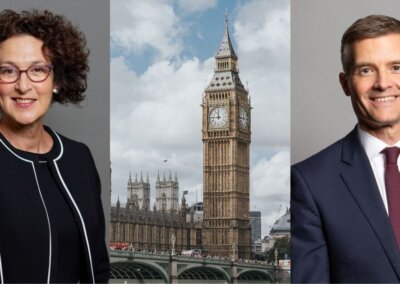A leading palliative care specialist and former head of the Association for Palliative Medicine has warned that some patients risk being pressured to opt for assisted suicide by relatives for an insurance payout.
Professor Bill Noble, former president of the Association for Palliative Medicine (APM), shared his concerns that “some patients would die before their time” if Kim Leadbeater’s Terminally Ill Adults (End of Life) Bill becomes law.
Professor Noble said “My concern stems from my experience of a few families requesting, manipulating or misrepresenting my patients’ wish to die or be killed by medical intervention”.
“It is not common, but it does occur and if the consequences were not severe, I have no doubt that some patients would die before their time. Doctors have neither the capacity nor the capability of policing this issue”.
Professor Noble’s worries around “coercion”
Professor Noble’s comments came as The Telegraph reports that insurance companies will treat assisted suicide in a similar manner to death from any other illness. Zurich Insurance Group said that, although it currently does not have a policy on assisted suicide, it would treat assisted suicide claims “sympathetically” on a case-by-case basis.
Royal London Group expressed similar sentiments, saying “If the individual who has passed away following an assisted death would likely have died naturally during the term of their plan, Royal London would likely pay such claims”.
However, Professor Noble shared his concerns that the prospect of such payouts could act as a kind of incentive.
“If the policy does not include terminal illness insurance and it is shortly coming to an end, it might well be a motive both for coercion and for the patient to choose assisted dying, particularly if the family understood the true nature of predictions of survival” he said.
The former APM president’s concerns about coercion have been echoed by key political leaders. Health Secretary Wes Streeting, who has already confirmed that he will vote against the Leadbeater assisted suicide Bill, said on BBC Breakfast late last month that he was “concerned about the risk of people being coerced into taking their own lives sooner than they would have liked, or feeling… guilt-tripped, feeling like a burden”. Liberal Democrat leader Sir Ed Davey, who has also confirmed that he is not backing the assisted suicide Bill, fears that legalising assisted suicide could lead to indirect pressure on older individuals to end their lives to avoid being a burden.
“I don’t think that they should have any pressure – either indirect or, you know, the other way – that they’re a burden and that’s where I really worry”, Sir Ed said.
Being a burden-a prominent “end-of-life concern”
Justice Secretary Shabana Mahmood also had similar concerns saying “I know some MPs who support this issue think, ‘For God’s sake, we’re not a nation of granny killers, what’s wrong with you’… [But] once you cross that line, you’ve crossed it forever. If it becomes the norm that at a certain age or with certain diseases, you are now a bit of a burden… that’s a really dangerous position”.
Fears about older individuals ending their lives to avoid being a burden have been seen in Oregon, which UK assisted suicide campaigners, Dignity in Dying, cite as a model for rolling out legislation. Almost half of those who have ended their lives by assisted suicide in Oregon said being a “[b]urden on family, friends/caregivers” was one of their “end-of-life concerns”.
Spokesperson for Right To Life UK, Catherine Robinson, said “MPs should listen to Professor Noble’s concerns about the dangers of some vulnerable people being urged to choose assisted suicide by unscrupulous relatives who will be keen to profit from a relative’s passing”.
“The brutal truth is that there will be no effective safeguards for the elderly or vulnerable against pressure or coercion if the Leadbeater Bill becomes law. The best way forward is for MPs to vote against this dangerous Bill”.












